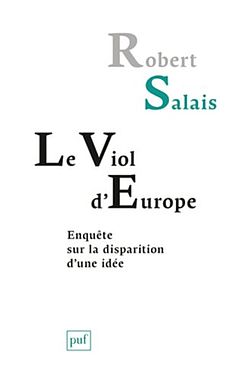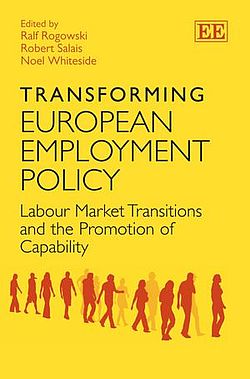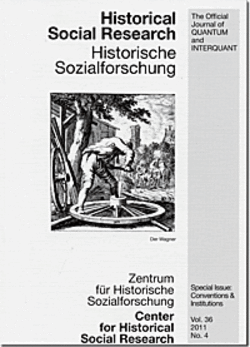Prof. em. Dr. Robert Salais | Assoziierter Forscher
Ehemaliges Mitglied
Fachbereich
:
Wirtschaftswissenschaften
|
Biographie
ISBN: 978-2130618904
L'idée d'Europe, historiquement, évoque une communauté de peuples libres et égaux, épris de démocratie, s'unissant pour tracer dans le monde un chemin qui leur soit propre. Le Grand Récit, l'histoire officielle de l'Union européenne, s'y réfère. La réalité historique est tout autre, celle d'un grand projet instrumentalisé et trahi, un viol en train d'être consommé. Notre Europe n'est guère plus la crise le révèle crument qu'une pièce d'un ordre mondial marchand, néolibéral et financiarisé. Pour comprendre la disparition de l'idée européenne, le livre entremêle les fils de deux histoires : celle de l'origine (l'Europe avant les traités de Rome), marquée par l'échec d'une communauté politique, et celle des chemins qui auraient pu être empruntés si l'Europe ne s'était pas enfermée dans le marché, puis dans la libéralisation financière. Des "lucioles" ont révélé d'autres Europe possibles. Si nous suivions les pistes qu'elles éclairent ?
Transforming European Employment Policy.
11.April 2012Robert Salais , Whiteside, Noel, Rogowski, Ralf
ISBN: 978-1849802567
Since the mid 1990s, the focus of European employment and social policy has shifted from protection to promotion. This book provides a timely analysis of this new form of governance, and the new forms of policy delivery and audit which accompany it.
The limitations of the current approach became particularly apparent during the financial crisis of 2008, and it has now reached a turning point. The book offers a new coherent European reform agenda that views easing transitions in employment and promoting the development of individual and collective capabilities as cornerstones. The contributing authors focus on vocational training, life course policies, reflexive labour law and social insurance, from theoretical, empirical and practical perspectives.
Transforming European Employment Policy will be of great benefit to policymakers as well as those researching or studying European law, labour law, industrial relations, political science, social policy or international business.
Historical Social Research - Historische Sozialforschung
31.Dezember 2010Robert Salais , Rainer Diaz-Bone
Historische Social Research
Collection: Historische Social Research
Abstract: »Économie des conventions und die Geschichte von Ökonomien.
Perspektiven für einen transdisziplinären Ansatz in der Wirtschaftsgeschichte.
«. This introduction and the contributions of the HSR issue intend to develop
and to demonstrate the potentialities of the economics of convention (EC) for a
transdisciplinary approach to the history of economies. “Convention” has become
a core concept in the renewal of French social sciences from structuralism
towards pragmatism. Conventions are interpretative schemes for action
and coordination that persons and actors use in situations under conditions of
uncertainty. Through repeated interaction they become an intimate part of the
history, incorporated into justifications, behaviours and social objects like institutions.
In contrast to neoclassic economics and to new historical institutionalism,
the EC starts from assumptions of a plurality of economic frameworks
of action, of the socio-historical construction of concepts, categories, and data.
It rejects dichotomies, adopts a broad conception of the economy, conceives
institutional change as the change of the “conventional” foundations for the
pragmatic use and interpretation of institutions. Its methodology is that of a
“complex pragmatist situationalism”, dedicated to a comprehensive approach
aiming at reconstructing the internal going-on of historical processes. This special
issue offers a set of contributions on: the origins of the approach, its methodological
standpoint, its possible developments towards a sociology of engagement
or hermeneutical concerns, several applications on economic history
(notably about conventions of quality and of labor).
Keywords: Economics of convention, institutions, pragmatism, economic action,
situation, economic history, new historical institutionalism, justifications,
plurality.


